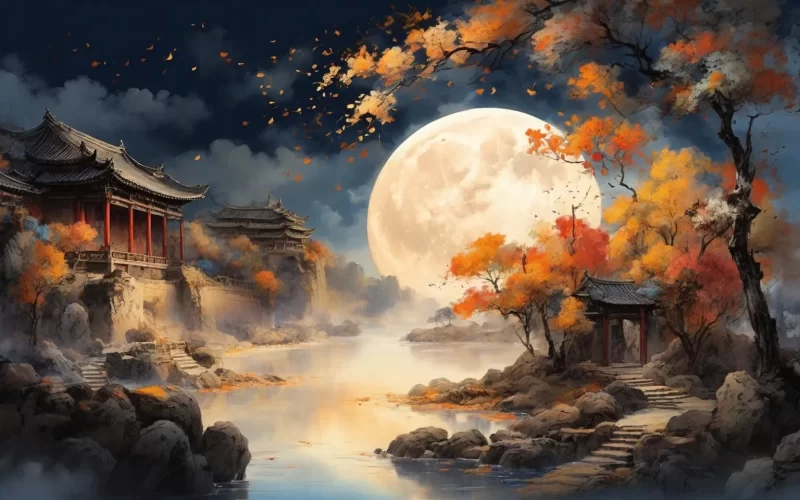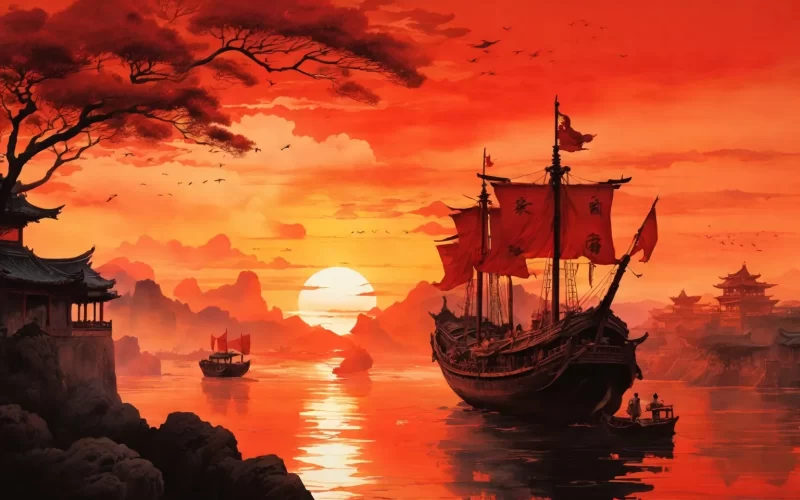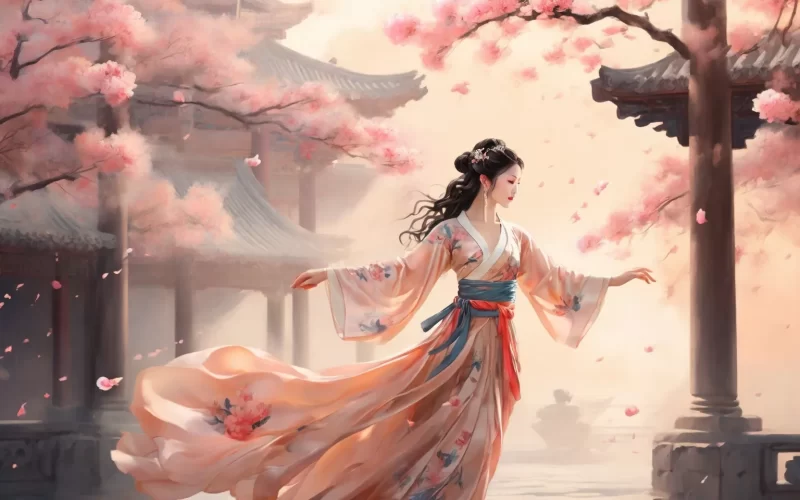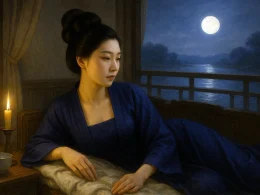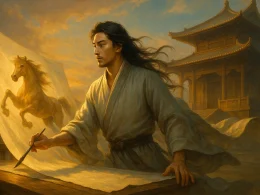The moon goes back to the time of Qin, the wall to the time of Han,
And the road our troops are travelling goes back three hundred miles...
Oh, for the Winged General at the Dragon City --
That never a Tartar horseman might cross the Yin Mountains!
Original Poem
「出塞」
王昌龄
秦时明月汉时关,万里长征人未还。
但使龙城飞将在,不教胡马度阴山。
Interpretation
This poem was composed during the High Tang period and stands as one of Wang Changling's most representative frontier poems. At a time when the Tang empire was militarily powerful yet constantly engaged in border conflicts, with soldiers perpetually stationed far from home and civilians yearning for peace, Wang Changling's verses express profound sympathy for the hardships of frontier service and ardent hope for capable generals to secure the borders.
First Couplet: "秦时明月汉时关,万里长征人未还。"
Qín shí míng yuè hàn shí guān, wàn lǐ cháng zhēng rén wèi huán.
"The same moon that shone on Qin forts, Han passes remains; / For miles they've marched, yet no soldier returns."
This couplet historicizes war's enduring cruelty. The parallel "Qin moon/Han frontier" suggests unbroken cycles of conflict, while "thousand-mile march" and "none return" convey war's spatial and human toll with piercing desolation.
Second Couplet: "但使龙城飞将在,不教胡马度阴山。"
Dàn shǐ lóng chéng fēi jiāng zài, bù jiào hú mǎ dù yīn shān.
"If but the Flying General of Dragon Town stood here, / No Tartar steed would dare cross Mount Yin's frontier."
Shifting from lament to aspiration, the poet invokes the legendary general Li Guang as the people's hope for security. The subjunctive phrasing blends folk memory with contemporary longing for peace.
Holistic Appreciation
In just four lines, the poem achieves monumental grandeur and emotional depth. The opening couplet encapsulates war's historical weight and human cost, while the closing lines envision heroic protection. Blending somber realism with aspirational heroism, its profound sentiment and elevated style make it a pinnacle of Chinese frontier poetry.
Artistic Merits
- History as emotional lens: "Qin moon/Han frontier" merges historical perspective with present feeling, creating meditative depth.
- Reality-idealism synthesis: Balances grim wartime realities with idealized military leadership for complex emotional resonance.
- Allusive expression: The Li Guang reference crystallizes popular yearning for security through cultural memory.
- Linguistic precision: Exemplifies the Tang heptasyllabic quatrain's unmatched expressive economy.
Insights
More than artistic achievement, this poem voices collective aspiration. Its melancholic depiction of war's relentlessness and passionate call for protective heroes reveals fundamental human desires for peace. It reminds us that true security requires both virtuous leadership and civic consciousness, embodying the poet's deep patriotism and people-centered values.
Poem translator
Kiang Kanghu
About the poet
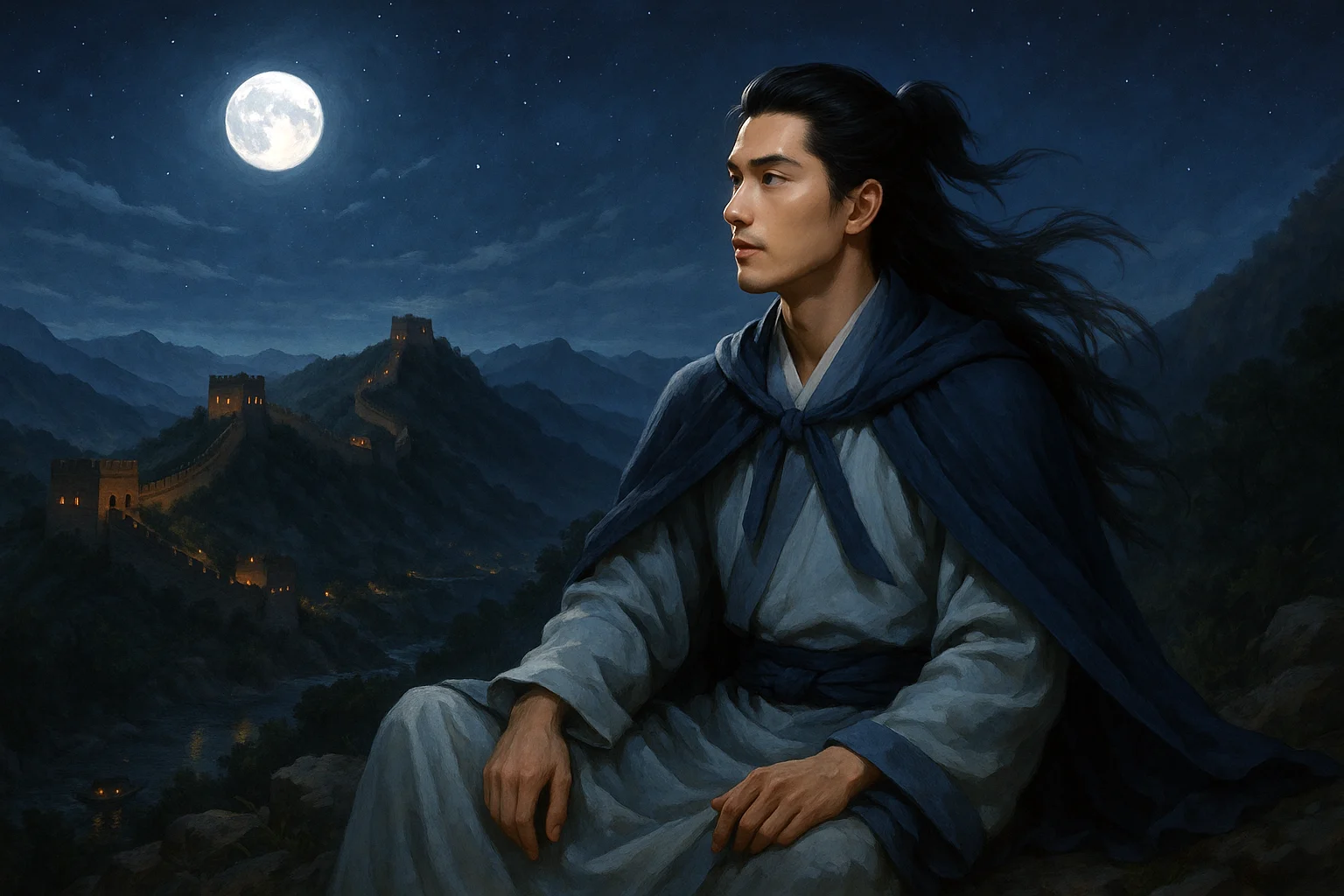
Wang Changling (王昌龄), circa A.D. 690 - 756, was a native of Xi'an, Shaanxi Province. Wang Changling's poems were mostly about the Border Places, love affairs and farewells, and he was well known during his lifetime. His seven poems are equal to those of Li Bai, and he is known as the “Master of seven lines”.






